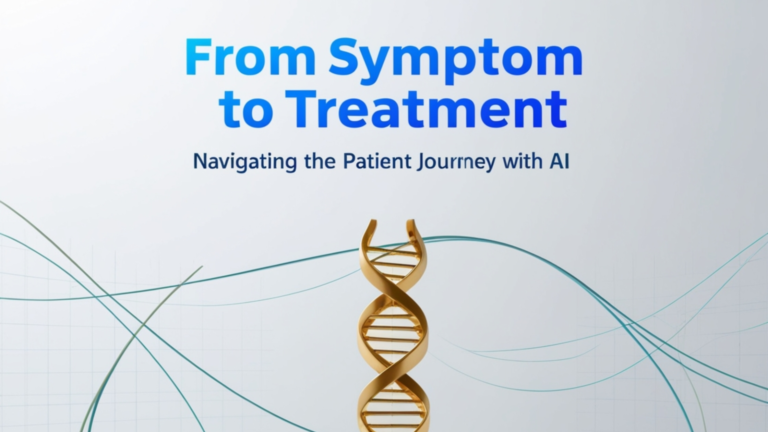
From Symptom to Treatment: Navigating the Patient Journey with AI
In today’s rapidly evolving healthcare landscape, artificial intelligence is revolutionizing how patients navigate their medical journeys. This comprehensive guide explores how AI-powered solutions are streamlining the path from initial symptoms to successful treatment outcomes, ultimately leading to better patient care and improved health results.
Understanding the Modern Patient Journey
The traditional patient journey often involves multiple frustrating touchpoints, lengthy wait times, and fragmented communication between healthcare providers. However, AI is fundamentally reshaping this experience, offering smoother, more efficient pathways to care.
Early Symptom Detection and Assessment
AI-powered symptom checkers and health monitoring tools are becoming increasingly sophisticated. According to a 2023 study published in Nature Medicine, AI algorithms can now detect early disease indicators with up to 90% accuracy, allowing for faster intervention and better outcomes. These tools help patients:
Receive personalized risk assessments
Access preliminary guidance on seeking appropriate care
Monitor chronic conditions more effectively
Streamlined Access to Care
The integration of AI in healthcare scheduling and triage systems has reduced wait times by an average of 30%, according to recent healthcare efficiency studies.
- Patient urgency levels
- Provider availability
- Required specialist expertise
- Historical patient data
- Geographic location
Personalized Treatment Planning
Modern AI systems analyze vast amounts of medical data to help healthcare providers develop more effective treatment plans. This includes:
- Analyzing millions of similar cases for optimal treatment patterns
- Predicting potential complications
- Suggesting medication adjustments based on patient response
- Identifying lifestyle factors that may impact treatment success
Predictive Analytics
- Early disease detection
- Personalized risk assessment
- Preventive care recommendations
Virtual Health Assistants
- 24/7 patient support
- Medication adherence monitoring
- Lifestyle coaching
Treatment Optimization
- Real-time treatment adjustments
- Outcome prediction
- Drug interaction analysis
Conclusion
The integration of AI in healthcare marketing represents a paradigm shift in how patients navigate their health journeys. From initial symptom assessment to treatment completion, AI-powered solutions are making healthcare more accessible, efficient, and effective than ever before.
Frequently Asked Questions
How accurate are AI-powered diagnostic tools?
Recent studies indicate that leading AI diagnostic systems achieve accuracy rates between 85-95% for common conditions, matching or exceeding human physician performance in certain areas. However, these tools are designed to support, not replace, healthcare professionals.
Is my medical data secure when using AI healthcare systems?
Healthcare AI systems must comply with strict HIPAA regulations and employ advanced encryption methods. Research shows that AI-enabled security systems can detect potential data breaches 300% faster than traditional methods.
Will AI make healthcare more expensive?
contrary to common concerns, AI implementation in healthcare is projected to reduce costs by 30% over the next decade through improved efficiency and early intervention strategies.
The Future of AI in Patient Care
As we look ahead, several emerging trends are shaping the future of AI-enabled patient care: